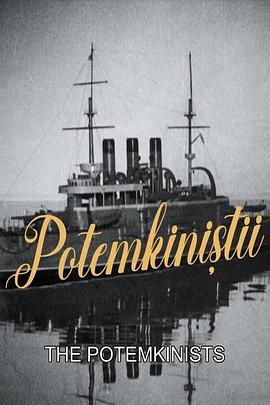Unveiling a lesser-known chapter following the cinematic portrayal of the 1905 uprising in Sergei Eisenstein's masterpiece, the tale of the Battleship Potemkin extends beyond the screen into a realm of unexpected refuge. After the dust of rebellion settled, the iconic vessel quietly berthed in the Romanian harbor of Constanța, where its crew found sanctuary under the benevolent wing of local governance. This oft-overlooked aftermath serves as the impetus for an upcoming comedic short, delving into the intricate tapestry of historical truth – or rather, the comical discrepancies born from mankind's ever-evolving dance with the past.

An intriguing aside: the creative spark that ignited this project took the form of a whirlwind 36-hour endeavor in June of 2021. Such haste explains the fleeting mention of Vladimir Putin as a jest within the narrative. Yet, as time marched on and the world around us evolved, so too did the script's tone. Had the film been rewritten today, its solitary dialogue would resonate with a starkly defiant note: "Defy you, Putin, and all who stand with you! A challenge echoing through eternity!"
In the spirit of sharing the unexplored, I present a curated collection of archival artifacts tied to the Potemkin sailors' arrival in Constanța. These treasures, though not woven into the fabric of the film itself, offer a glimpse into the fringes of history where fact meets the shadows of obscurity. Through these documents, one can trace the faint outlines of lives disrupted, refuge sought, and the complex interplay between nations during动荡 times.
The archives whisper tales of courage and fear, of sailors stepping off the decks of revolution and onto foreign soil, their futures uncertain. They reveal diplomatic maneuverings, the tension in the air as Romanian officials weighed the consequences of offering sanctuary to those branded叛逆s by their homeland. Each yellowed page, each faded photograph, adds depth to a story that, until now, has lain dormant outside the margins of mainstream historical discourse.
This comedic exploration thus serves not just as entertainment but also as a thought-provoking probe into the nature of memory and how we, as a global community, engage with the narratives of our collective past. It asks us to question what we remember, what we forget, and how our understanding of events can shift with time, perspective, and the ever-present influence of contemporary politics.
In essence, this short film becomes a portal, inviting viewers to traverse the multifaceted layers of history,笑话 and all, and to ponder the subtle humor that arises from the chasm between recorded facts and our subjective interpretations. As the Potemkin fades from the harbor of Constanța, her legacy—both factual and fictional—continues to sail, challenging audiences to navigate the choppy waters of historical truth.
 七弟电影
七弟电影
![韩国丧尸片《#活着/ALIVE》百度云网盘资源[HD-MP41.7GB][完整版][高清韩语中字]-七弟电影](https://gaga.pochou.com/wp-content/uploads/2020/06/活着-电影剧照-5-300x300.jpg)

